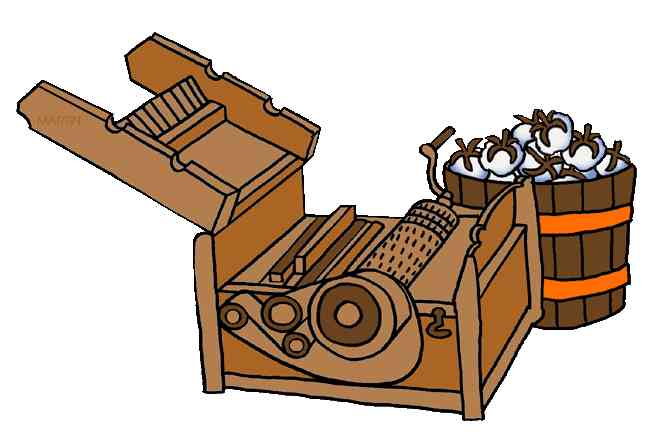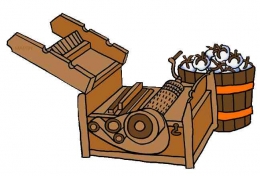Eli Whitney was an American innovator, mechanical and manufacturing mastermind, best known for his invention of the cotton - shelling machine and developing the generalities of mass product and exchangeable assembly lines. Born, December 8, 1765, in Westboro, Massachusetts, United States, Whitney grew up as the son of a planter, so as a child he came professed as a handy person in an agrarian factory. After graduating from Yale College in 1792, he moved to Savannah, Georgia, United States to educate as an instructor and learn about the main problems in the South, where numerous growers in the region were allowing about how to cultivate cotton efficiently, and how to produce cotton. In amounts sufficient to meet the demand for the recently constructed spinning and weaving machines in England?.At a time when British manufactures were plaintively short of cotton, Southerners exported small amounts of the black seed, long-staple variety. Black-seed cotton with long masses is easy to clean, but only grows near the seacoast, while green-seed cotton with short masses grows in inland areas but can not be gutted because the filaments stick to the seeds. At that time, cotton stripping was done manually, which needed a lot of time and trouble. So Whitney decided to produce a machine for drawing green-seed cotton that could separate the cotton filaments from the seeds more snappily and efficiently than homemade stripping. Whitney saw that a machine for drawing green seed cotton could make the South more prosperous and make its innovator rich. Noway having seen raw cotton, Whitney realized that comb-suchlike teeth were necessary. Within a many days he'd a rough model. Grounded on simple principles, the cotton gin was completed in 1793. By 1800, cotton product had increased from about 3,000 bales per time to 73,000 bales. His invention of the cotton cleanser brought substance to the South.Whitney patented the gin in 1794 and formed a business cooperation with Phineas Miller. The agronomists' reluctance to pay for the rights to use the gin gave rise to numerous suits. Whitney's machines were copied, his patents violated, and his plant burned down. Defending her rights in court drained Whitney's income. Deeply in debt in 1798, Whitney contracted with the United States government to manufacture 10,000 muskets. Until also munitions were still made by hand; no two people are the same. Whitney designs new munitions and the machines to make them. The machines produce exactly the same corridor. Each part would fit any armament he created. Whitney also created a division of labor, where each person specialized in making one part of the gun. The final step is simply assembling the exchangeable corridor). In making this rifle/ arm, Eli Whitney used a mass product system he discovered. In this way, arms product becomes briskly and more effective. Eli Whitney's mass product operating system was latterly espoused by numerous other diligence in the United States and came one of the main factors in accelerating the industrialization process in that country. Despite the enormous success of his invention, Whitney faced numerous challenges. Numerous people tried to copy his machines and vend them at cheaper prices, which caused him to spend a lot of time and plutocrat guarding his patents. Still, his discovery remains an important corner in the history of the United States and in the field of operation has helped accelerate the country's artificial development. Eli Whitney failed in 1825, but his heritage continues to be flashed back moment. Whitney's success in creating machines and mass product systems paved the way for the development of the ultramodern manufacturing assiduity and came an important corner in the history of operation. In this case, Whitney is considered a colonist in the field of operation because he succeeded in developing an effective and well-organized product system. Whitney's success in creating mass production systems and machines paved the way for the development of modern manufacturing and became a milestone in management history. Therefore, he deserves to be called the father of operations or what is usually called the father of management.
Reference:
- https://kids-britannica-com.translate.goog/students/article/Eli-Whitney/277732?_x_tr_sl=en&_x_tr_tl=id&_x_tr_hl=id&_x_tr_pto=tc
- http://kanguda2.blogspot.com/2019/07/eli-whitney-penemu-mesin-pemisah-biji.html
- https://en-m-wikipedia-org.translate.goog/wiki/Eli_Whitney?_x_tr_sl=en&_x_tr_tl=id&_x_tr_hl=id&_x_tr_pto=tc
- https://www-britannica-com.translate.goog/biography/Eli-Whitney
- link gambar mesin "Gin"











